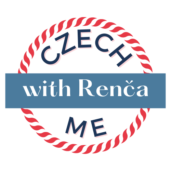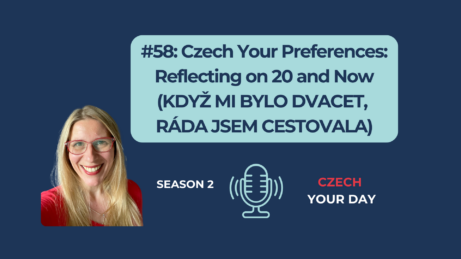Episode 7 (daily podcast CZECH YOUR DAY) transcript included

THIS WEEK’S TOPIC: WHAT TIME IS IT?/KOLIK JE HODIN?
THE TRANSCRIPT/HANDOUT IS DOWN BELOW
Today, let’s enrich our conversations by introducing some essential verbs. We’ll dive into one of the most frequently used verbs in Czech – “DĚLAT.” This versatile verb means “to do,” “to make,” “to work,” and “to prepare.” Despite not always being highlighted in dictionaries, “DĚLAT” is a staple in informal Czech, often heard at home or among friends.
Understanding “DĚLAT” in Context
Imagine needing to express what you usually do over the weekend. You might say:
Co obvykle děláš o víkendu?
Translation: What do you usually do at the weekend?
It can be also used in the following informal situations:
Kde děláš?
Translation: Where do you work?
In the kitchen, Czechs frequently use “DĚLAT’’ when preparing food or drinks. You might say:
Dělám kafe, or Dělám teď dort,
Translation: I am making coffee, or I am making a cake.
„DĚLAT SI“ for Personal Touch
A slight variation with a significant meaning is “DĚLAT SI.” When using “DĚLAT SI,” you’re emphasizing that you are doing something for yourself, not someone else. For example:
Dělám si kafe.
Translation: I am making coffee (for myself).
Expressing Meal Times in Czech
There are a few ways to express you’re having a meal in Czech.
- Breakfast:
- Mít snídani (to have breakfast)
- Snídat
Translation: I am having breakfast. - Lunch:
- Mít oběd (to have lunch)
- Obědvat
Translation: I am having lunch. - Dinner:
- Mít večeři (to have dinner)
- Večeřet
Translation: I am having dinner.
Put Your Czech Skills to Practice
Congratulations! With the episodes 6 & 7, you’re now equipped to express when you have breakfast, lunch, and dinner, and even add what you’re fixing for yourself, like coffee or cake.








